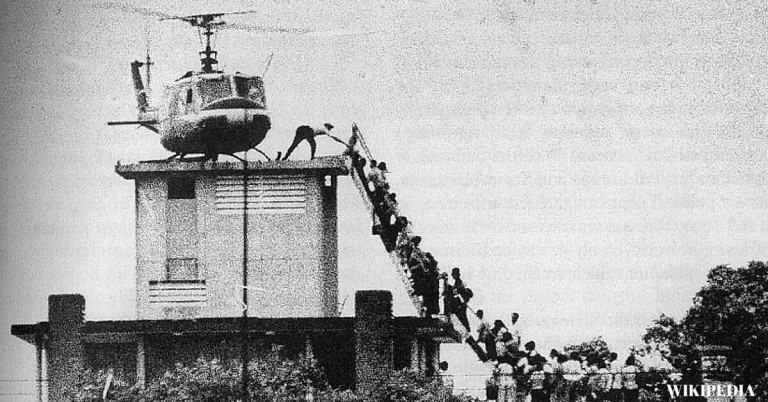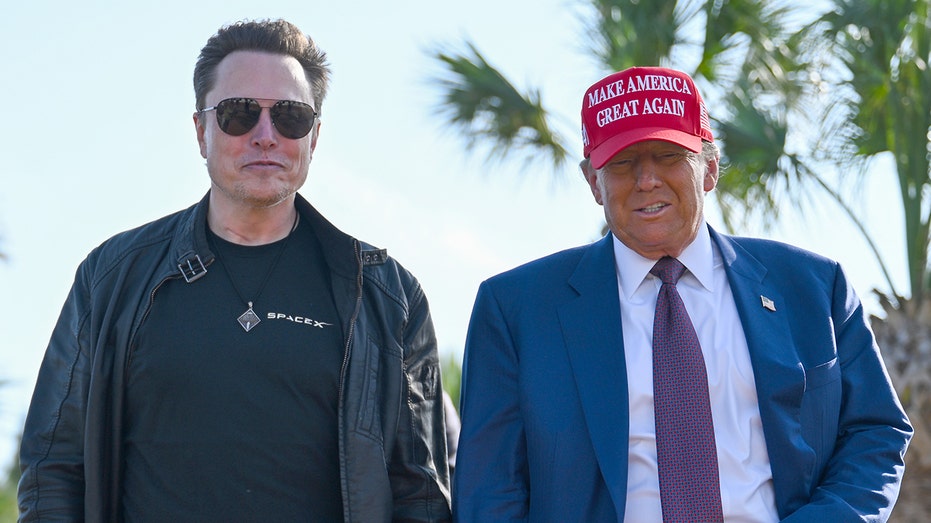50 Years On: US Elites Learned Nothing From the Vietnam Defeat

April 30, 2025, marks the 50th anniversary of the final, definitive defeat of the U.S. military crusade in Vietnam. The images of U.S. helicopters desperately flying American diplomats and Washington’s high-level South Vietnamese collaborators from the roof of the U.S. embassy in Saigon effectively captured not only the chaotic environment, but also the extent of Washington’s overall policy debacle. The outcome of the war was a humiliating defeat for the United States in every respect. Vietnam’s reunification under a communist government was now an indisputable reality. Indeed, the United States finally succumbed to the pressure to establish diplomatic relations with that government in 1995. Washington’s failed effort over more than two decades to prevent that outcome was extremely expensive financially to the United States, with more than $141 billion expended. Measured in terms of 2025 dollars, that amount would be approximately $838 billion. Even worse was the terrible cost in blood. The war took the lives of more than 58,000 American soldiers and caused an estimated 3.8 million casualties, both civilian and military, in South Vietnam, North Vietnam, Laos, and Cambodia. Widespread disillusionment about Washington’s armed crusade in Southeast Asia was evident in the United States, and for a few years, the disastrous experience seemed to inoculate the American public against supporting any similar adventures. When Ronald Reagan’s administration flirted with providing military backing for corrupt client regimes in Central America, there was noticeable pushback, especially from Democrats in Congress. “No more Vietnams” became a popular mantra throughout the country. However, a closer look at public attitudes, especially the views of political elites in both parties, would have suggested that the change in Washington’s overall foreign policy orientation was less substantial than it seemed at first glance. There was little resistance to pro-war adventurism elsewhere in the world, as long as U.S. military personnel were not directly at risk. For example, Washington’s policy of using Islamist rebels in Afghanistan to harass Soviet occupation forces received extensive bipartisan support. Even direct U.S. military involvement received little push back, as long as a U.S. victory was quick and decisive. That point was confirmed when U.S. forces invaded Grenada in 1983 and promptly ousted a pro-communist regime that had recently seized power. The Reagan administration’s meddling in Lebanon’s civil war, though, showed that there remained an extensive public and elite aversion to American casualties. The loss of 241 Marines in the bombing of the U.S. barracks outside Beirut immediately caused the administration to move the remaining troops to ships off shore, and that step was just a prelude to the departure of all U.S. forces from Lebanon. Although the bruising experience in Vietnam had apparently induced a somewhat greater level of caution – at least temporarily – among Washington’s political and policy elites with respect to a few specific cases, it had not caused any reconsideration of the foundational assumptions of U.S. foreign policy. In particular, the “1930s model” still dominated elite perceptions about world affairs and America’s proper role in the international system: American opinion leaders were still obsessed with preventing the rise of “another Hitler.” Closely related assumptions were that “appeasement” never works, “aggression” had to be stopped in its tracks as soon as signs of it appeared, and that complex, murky geopolitical struggles could be portrayed as stark conflicts between good and evil. Despite the negative consequences of the Vietnam War, those attitudes remained intact. The continuing ability of such propaganda to sway public opinion in favor of war became apparent during the Persian Gulf crisis in 1990-1991. The simplistic “good versus evil” narrative was especially tenacious. George H. W. Bush’s administration, with the active assistance of a hawkish news media, succeeded in convincing the American public that not only was Iraq’s Saddam Hussein a monstrously evil ruler, but also that he posed a threat to world order comparable to Hitler’s. It was a preposterous notion for multiple reasons. First, Washington had viewed Saddam as a valuable client throughout Iraq’s multi-year war of aggression against Iran’s revolutionary government. The Iraqi leader got into trouble with Washington only when he failed to win the fight against Tehran and then had the temerity to seize Kuwait (a longstanding Iraqi territorial claim) without Washington’s permission. Bush administration officials and their media allies exaggerated Iraq’s military capabilities and invented inflammatory atrocity stories to justify a war against Iraq waged by a U.S.-dominated international coalition. The surprisingly easy victory by coalition forces largely erased the lessons of caution remaining from the Vietnam experience. Administration officials and other members of Washington’s pro-war elite gloated that America had finally overcome the “Vietnam Syndrome.” When the dissolution of the Soviet Union at the end of 1991 left the United States as the sole remaining global power, that development eliminated the last restraint on U.S. military adventurism. The painful lessons of the defeat in Vietnam have been largely forgotten, and the current generation of U.S. policymakers is at least as reckless as any of its predecessors. The prevailing approach to international conflicts has a dreary, formulaic aspect: exaggerate the severity of the threat to both international peace and America’s security; portray Washington’s adversary as the epitome of evil; and portray any beleaguered U.S. client as both an innocent victim and a proponent of freedom and democracy. Washington’s dishonest propaganda regarding the war between Russia and Ukraine – both corrupt autocracies–is almost a caricature of that strategy. The litany of Washington’s military interventions and proxy wars since Vietnam – Afghanistan, Lebanon, Grenada, Panama, Kuwait, Somalia, Bosnia, Kosovo, Afghanistan (again), Libya, Syria, Yemen, and most dangerous of all, Ukraine – all convey the extent to which U.S. policy elites and much of the U.S. public have remained impervious to the deeper meaning of the Vietnam debacle. As one cynical observer said to me: “The only enduring lesson from the Vietnam War appears to be ‘don’t go to war in a country called Vietnam.’” Such a pervasive failure of policymakers and the American people to learn more substantial lessons may be that horrible conflict’s most tragic and lasting legacy. Dr. Ted Galen Carpenter is a contributing editor to 19FortyFive and a senior fellow at the Randolph Bourne Institute and the Libertarian Institute. He also served in various senior policy positions during a 37-year career at the Cato Institute. Dr. Carpenter is the author of 13 books and more than 1,300 articles on defense, foreign policy and civil liberties issues. His latest book is Unreliable Watchdog: The News Media and U.S. Foreign Policy (2022).


















